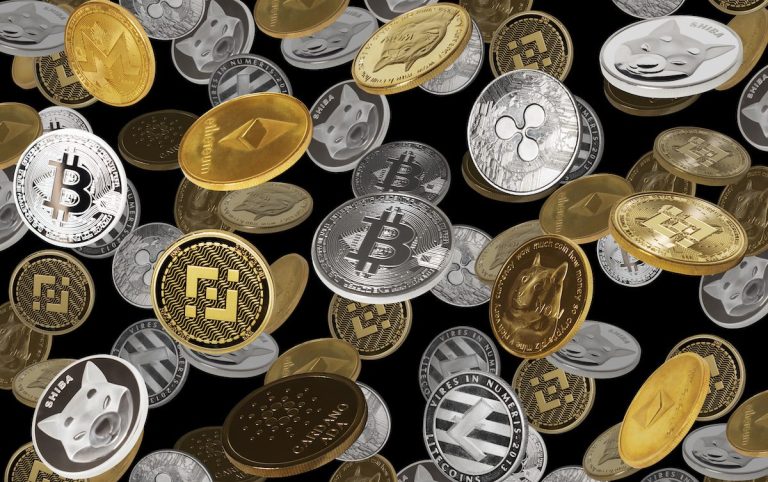Global Watchdog Eyes Crypto’s Future as Hong Kong Releases Rulebook

Cryptocurrency, which once aimed to democratize finance, finds itself operating across an increasingly fragmented landscape.
The sector’s former goals of global connectivity are now being drawn and quartered by a patchwork of jurisdiction-level regulations.
Hong Kong’s Securities and Futures Commission (SFC) released Tuesday (May 23) the Consultation Conclusions on the Proposed Regulatory Requirements for Virtual Asset Trading Platform Operators Licensed by the SFC, detailing the special administrative region’s rulebook ahead of a June 1 licensing regime for crypto.
Hong Kong has been taking strides to redevelop itself into a hub for cryptocurrencies, even as the digital asset sector and regulators butt heads elsewhere in Asia.
Crypto remains banned outright across mainland China.
Separately, the International Organization of Securities Commissions (IOSCO), an association of organizations that regulate the world’s securities and futures markets that counts members from over 100 countries, unveiled Tuesday its own approach, and the first global regulatory view on regulating crypto assets and digital marketplaces.
See also: SEC Crypto Enforcement Actions on Track to Outpace 2022
The IOSCO’s proposal lists 18 policy recommendations that the Madrid-based association plans to finalize later this year.
“One of IOSCO’s goals is to promote greater consistency with respect to how IOSCO members approach the regulation and oversight of crypto-asset activities, given the cross-border nature of the markets, the risks of regulatory arbitrage and the significant risk of harm to which retail investors continue to be exposed,” the consultation report stated.
Meanwhile, in the U.S., the crypto environment is becoming sharper, if not clearer as regulators crack down on the sector following a string of embarrassing collapses and exposures of fraudulent activity last year.
Bank of America (BoA) analysts published a research report Friday (May 19) saying the upside value of digital assets is “capped.”
Regulators Grapple With How to Handle Crypto Industry
“Providing clear regulatory expectations is the key to fostering responsible development,” said Julia Leung, CEO of Hong Kong’s SFC. “Hong Kong’s comprehensive virtual assets regulatory framework follows the principle of ‘same business, same risks, same rules’ and aims to provide robust investor protection and manage key risks. This will enable the industry to develop sustainably and support innovation.”
Hong Kong, which used to be a popular digital asset hub in the sector’s earlier years before taking a more stringent stance, is in some ways coming full circle as it attempts to woo back retail and institutional investors.
China’s ban on crypto in 2021 took the shine out of Hong Kong’s appeal to digital asset businesses. Firms like Sam Bankman-Fried’s failed crypto exchange FTX and its sister trading firm Alameda both had roots in the city dating back to 2019 before relocating to friendlier offshore jurisdictions like the Bahamas.
Hong Kong’s regulatory commission said licensed crypto platforms must, “comply with a range of robust investor protection measures covering onboarding, governance, disclosure and token due diligence and admission before providing trading services to retail investors.”
Per the Hong Kong SFC’s consultation, non-security crypto tokens are required to have 12 months of no bad records, and tokens purchased by retail investors need to be included in at least two Hong Kong-compliant indices.
Beginning June 1, unlicensed exchanges actively marketing to Hong Kong investors, including overseas platforms, will be breaking the law.
Along with Hong Kong, Dubai has also been trying to attract crypto investment, while Singapore Deputy Prime Minister Heng Swee Keat has cautioned retail investors to steer clear of the asset class.
The Importance Oversight Brings as Crypto Matures
Observers believe the regulatory tenor in the U.S. stems from the attempt of agencies like the Securities and Exchange Commission (SEC) to work with companies like FTX only for those companies to turn out not to be bastions of innovation but rather fraudulent fronts for alleged money laundering and other crimes.
A new special report published Tuesday from Reuters is likely to assuage those fears.
The report found that the world’s largest crypto exchange and one-time FTX competitor, Binance, commingled customer funds with company revenue in 2020 and 2021 in a flagrant breach of U.S. financial rules.
Binance operates as somewhat of a black box and has never disclosed where its Binance.com trading platform is based nor what corporate taxes it pays and where.
Per the report, Binance commingled billions of dollars of customer and corporate funds on an almost daily basis using accounts the exchange held at now-collapsed Silvergate Bank.
“Their business models tend to be built on taking customer funds, commingling it,” SEC Chairman Gary Gensler said May 15 at the Federal Reserve Bank of Atlanta’s Financial Markets Conference.
Gensler’s comments today on $COIN at the Atlanta Fed pic.twitter.com/tK3PTHxs9U
— Kilroy (@ROCKilroy) May 15, 2023
For all PYMNTS crypto coverage, subscribe to the daily Crypto Newsletter.